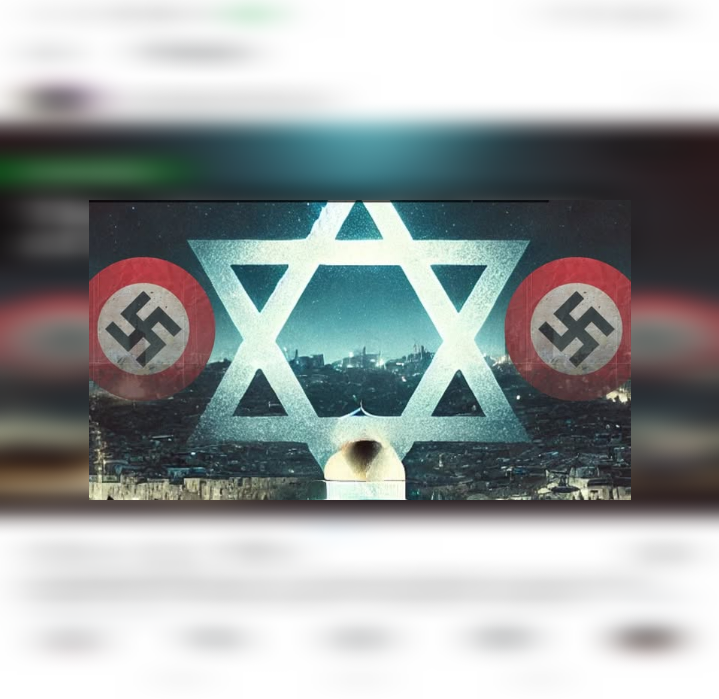.The Israel-Palestine conflict, marked by violence and human suffering, is often discussed in terms of territorial disputes and national security. However, it is critical to examine whether the actions of Israel—particularly towards Palestinians—breach the established protocols of international law, specifically the laws of war, and how these actions bear unsettling similarities to the atrocities committed by Nazi Germany under Adolf Hitler.
Understanding the Laws of War
The laws of war, also known as International Humanitarian Law (IHL), are a set of rules designed to limit the effects of armed conflict on people, property, and the environment. Key treaties under IHL include:
1. The Geneva Conventions (1949)
These conventions outline the protections afforded to civilians, prisoners of war, and combatants who are no longer taking part in hostilities. Article 3 common to all four Geneva Conventions is a fundamental provision that prohibits acts such as violence, cruel treatment, and torture against persons who are not actively participating in hostilities.
2. The Hague Regulations (1907)
These regulations provide additional protection for civilians and prohibit actions such as collective punishment and the destruction of civilian property that is not necessary for military operations.
3. Additional Protocols to the Geneva Conventions (1977)
– These protocols reinforce protections for civilians and combatants who are no longer engaged in fighting, prohibiting indiscriminate attacks and the use of tactics that disproportionately harm civilian populations.
Israel’s Actions and Breach of the Laws of War
Throughout the Israel-Palestine conflict, there have been numerous instances where Israel’s actions appear to breach the laws of war, specifically in its treatment of Palestinian civilians, the targeting of civilian infrastructure, and the use of disproportionate force
.1. Indiscriminate Attacks on Civilians.
Article 51 of Additional Protocol I prohibits attacks that are not directed at specific military objectives. Israel has been accused of using disproportionate force in Gaza, resulting in widespread civilian casualties. For example, airstrikes and artillery attacks on densely populated areas, including schools, hospitals, and residential buildings, often kill large numbers of civilians without targeting military objectives
.2. Collective Punishment:
The policy of collective punishment, where entire populations suffer due to the actions of individuals, is prohibited under Article 33 of the Fourth Geneva Convention. Israel’s frequent use of blockades, destruction of homes, and arbitrary detentions in Gaza and the West Bank are often cited as violations of this principle.
3. Settlements and Displacement:
Israel’s continued construction of settlements in the occupied Palestinian territories, including East Jerusalem, is viewed by many as a violation of Article 49 of the Fourth Geneva Convention, which prohibits an occupying power from transferring its own civilian population into the territory it occupies. This has led to the displacement of Palestinians, further deepening their suffering and fueling the conflict.
Comparison to Nazi Germany’s Atrocities
The comparison between Israel’s actions and those of Nazi Germany, led by Adolf Hitler, is highly contentious and fraught with political implications. However, there are disturbing parallels that merit examination, particularly when it comes to the systemic oppression of a marginalized population.
1. Mass Displacement and Genocide:
Nazi Germany’s regime carried out horrific acts of genocide against the Jewish people, the Romani people, and others, through systematic violence, forced relocation, and concentration camps.
While there is no equivalent to the Holocaust in Israel’s treatment of Palestinians, the displacement of Palestinians from their homes and the ongoing humanitarian crisis in Gaza and the West Bank raise serious concerns.
Critics argue that the treatment of Palestinians, particularly under blockade and military occupation, is a form of ethnic cleansing, though not on the scale of the genocide in Nazi Germany.
2.The Dehumanization of a Population:
Just as the Nazis dehumanized Jews and other minorities, Israeli actions, according to critics, often portray Palestinians as less-than-human. The dehumanizing rhetoric used by some Israeli officials, as well as the harsh treatment of Palestinians at checkpoints, detention centers, and in military operations, can be seen as a means of reinforcing the idea that Palestinians are not entitled to the same rights and dignity as other people.
3. Systemic Control and Suppression:
Hitler’s regime implemented widespread surveillance, control, and suppression of Jews and other “undesirables,” systematically removing their rights, mobility, and access to resources.
Israel’s control over Palestinian movement, the construction of the separation wall, and the constant surveillance in the occupied territories mirror these oppressive tactics, making it difficult for Palestinians to live freely or build their futures without fear of arbitrary violence or imprisonment
The Path Forward: Addressing Violations and Seeking Justice
While the comparison between Israel’s treatment of Palestinians and Nazi Germany’s atrocities may seem extreme, it is essential to recognize that both situations involve grave violations of human rights and international law
The world must hold Israel accountable for its actions, not through blanket comparisons but through a commitment to upholding the laws of war and protecting the rights of all people—whether Palestinian or Israeli.
International efforts, such as those led by the United Nations and human rights organizations, should focus on enforcing the Geneva Conventions and holding all parties to the conflict accountable for their actions. The world must strive for peace and justice, not through violence and retaliation but through dialogue, diplomacy, and a genuine commitment to human dignity.
The Israel-Palestine conflict, though complex, demands careful analysis of the legal and moral implications of actions taken by both sides. While Israel’s actions have raised serious concerns about violations of the laws of war, comparing them to Nazi Germany’s genocide must be approached with care.
However, there are undeniable similarities in the oppressive tactics employed, and it is crucial that the international community continue to scrutinize the situation to ensure that justice is served, peace is achieved, and the human rights of all individuals are respected.
 Top Trends Blogs Trending Blogs – Latest News
Top Trends Blogs Trending Blogs – Latest News

